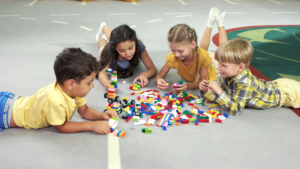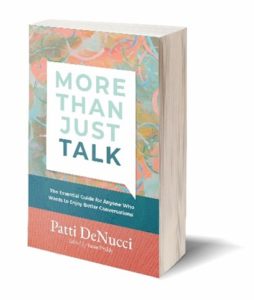A friend was recently telling me about her very smart nephew who is entering Kindergarten this fall. He can already recite the elements of the Periodic Table. As you can imagine, the parents and family of this highly intelligent child are immensely proud.
“He’s intellectually advanced,” they announce to anyone who will listen.
Care to guess my response to this?
“That’s amazing! Does this child also have good social skills? Is he able to introduce himself, initiate play, and get along well with other children?”
“Well…no…He mostly keeps to himself.”
Hmmm.
I’m all for nurturing the academic intelligence of our children and encouraging them to learn, reach for the stars, and get good grades. (Did I mention I was Valedictorian of my high school graduating class? And that I graduated from college magna cum laude?)
I get it. Smart is good. 
Here’s the problem: sometimes parents put far too much emphasis on academic achievement as a marker for their child’s past, present, and future success. They don’t understand that another important “intelligence” a child can have as he navigates school, life, relationships, and career is something called “social intelligence.”
Ever heard of it? Let me give you the quick version. Our social intelligence is:
- Our awareness and management of our social behavior
- How well we pay attention to the social cues of others
- How well we interpret and act on those social cues
In short, social intelligence is socializing well and building relationships, easily, graciously, and confidently. Unlike your Intelligence Quotient (IQ), which you are born with and will not change, your social intelligence is learned and buildable. You accumulate it from your experiences with other people, beginning in your earliest years.
As an infant, you begin learning what works and what doesn’t as you interact with your parents and family. You try out new methods and make course corrections accordingly. You also learn new tricks by watching what your parents say and do ─ and by listening to their instructions.
Again, you can continue to build and strengthen your social intelligence throughout your life. This is why I encourage people who say they are introverts, shy, or socially anxious or awkward to please stop labeling themselves and throwing in the social towel. We can all enhance our social intelligence with learning and practice.
“But I like my own company,” I often hear. Hey, I like mine, too. But I know I need people to thrive. So do you, and so does your very bright child.
Don’t believe me? Consider these words published last January in the Wall Street Journal: “In its 85 years and counting, the Harvard Study of Adult Development* has found that personal connections are the most important factor in long-term health and happiness.”
My message to the parents of the boy who can recite the periodic table (which, for the record, I cannot do): Your child is clearly brilliant and will do just fine in school. Why not do him a huge favor and spend some time teaching him what the schools likely won’t: how to develop and hone his social intelligence.
A few thoughts on how parents can do this:
- Model good social skills and behaviors. Your children are watching and learning from your every social ─ or antisocial ─ move.
- Give them opportunities to meet and play with other children.
- Teach your children how to introduce themselves to others, both children and adults, and how to initiate conversation or play.
- Model and encourage frequent use of: “Hello,” “Good-bye,” “Please,” “Thank you,” “Excuse me,” and “No thank you.”
- Work with your children on how to share, use kind words, apologize, cooperate, and take turns.
- Read books together on the subject of manners and making friends. There are a number of excellent, age-appropriate books out there that teach these skills.
Speaking of books, perhaps you could expand your own socialization skills? Get yourself (or someone you know) a copy of my new book More Than Just Talk: The Essential Guide for Anyone Who Wants to Enjoy Better Conversations. I’m proud to share that it recently earned a silver award from the Non-Fiction Authors Association! (See? I’m proud of my achievements, too!) 
You can find More Than Just Talk at BookPeople in Austin and with any online book retailer.
*The link to an excellent article on this study can be found here.



Recent Blog Comments